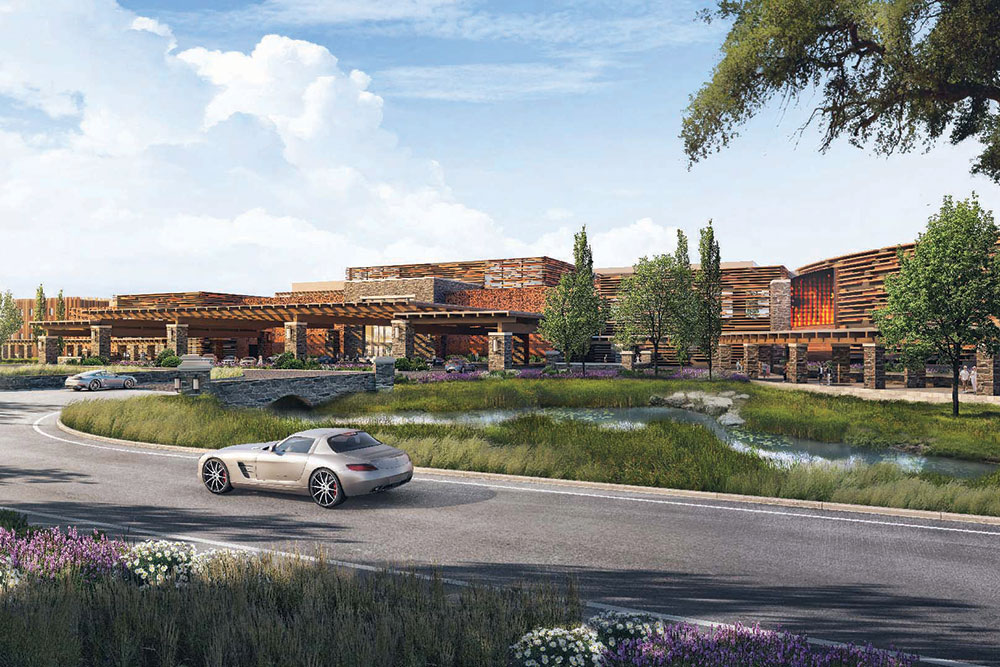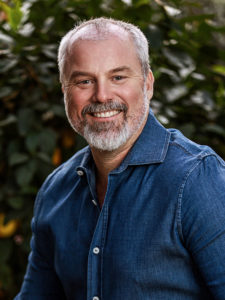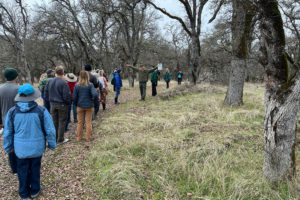
By Simone Wilson
One of the Biden administration’s final moves of its 2021-25 term will likely be felt in Northern Sonoma County for years to come. On Monday, just one week before the Jan. 20 inauguration of President-elect Donald Trump, the federal Bureau of Indian Affairs approved a bold request from the Koi Nation, a small but mighty Southeastern Pomo tribe from Lake County.
Koi leaders asked that around 70 acres of vineyard land they own along the southeastern edge of Windsor be placed in “federal trust”—and the Bureau obliged. This means the Koi are allowed to move forward with their plan to build a giant new Wine Country casino on the plot.
Darin Beltran, chairman of Koi Nation, called this “a historic moment of opportunity and justice” for his tribe, which has for decades sought to secure a chunk of its own federally protected casino land.

He added in a statement: “The Koi Nation has been afforded for the first time in over a century a real opportunity to build a sovereign land base that will provide economic development, self-governance, and a bright future for current and future generations of our tribal citizens.”
The Koi’s plans call for a $600 million complex to be known as the Shiloh Resort & Casino to be built at the intersection of Shiloh Road and Old Redwood Highway—filled with 2,500-plus slot machines; a five-story, 400-room hotel; six restaurants and bars; a large event center and more.
And much to the chagrin of Windsor residents who live nearby, this new gaming campus would butt up against the town’s quiet Shiloh neighborhood and Esposti Park, a popular family hub.
Windsor Town Manager Jon Davis said Tuesday that while he is supportive of any Indigenous people’s efforts to become sovereign and support themselves, the placement of this particular casino feels inappropriate. “We’ve never seen one approved this close to a neighborhood community—directly adjacent,” he said. “It came as a surprise.”
‘A Black Box’
Sonoma County Supervisor James Gore, whose jurisdiction includes the proposed site of Shiloh Resort & Casino (or used to, until it became federal Indian land this week), was less surprised by Monday’s decision. He’s seen it happen before, he said, and predicts it will happen again.

“The Bureau of Indian Affairs process is a black box,” Gore said. “You never know if it’s based on process or politics.” (On Wednesday, Gore announced his intention to run for the state senate seat being vacated by Mike McGuire at the end of his current term.)
In the nearly two-and-a-half years since the Koi first unveiled their Windsor casino concept, government officials at the town, county and even state levels have made long lists of all the things they’re worried about. Chief among them: heavy strain on the water supply, increased traffic on local roadways, clogged wildfire evacuation routes, and the potential security and crime issues that might arise from a gambling emporium with millions of visitors per year.
Windsor neighbors, too, submitted hundreds of comments and letters during an environmental review process held by the Bureau of Indian Affairs last year, according to Gore.
But now that the feds gave their blessing, the Koi have free reign to take or leave the community input. Gore said he and other local officials will try to hammer out terms with the Koi that best serve the surrounding area. However, he predicts that “neighborhood people will come to us and ask us to negotiate with authority that we don’t have.”
The supervisor added: “We’re going to have to honor the decision of the federal government—there’s no other way.”

‘Preposterous’
Perhaps most outraged of all are the five Native American tribes that claim Sonoma County as their original homeland, most of them Southern Pomo: the coastal Kashia Band, the Cloverdale Rancheria, the Lytton Rancheria, the Graton Rancheria and the Dry Creek Rancheria Band of Pomo Indians.
These tribes wield significant financial and political power around here. And the latter two run the county’s existing tribal casinos, both huge moneymakers: the Graton Resort & Casino to the south in Rohnert Park, and River Rock Casino to the north in Geyserville.
Greg Sarris, head of the Graton Rancheria band, has been especially vocal against the Shiloh casino proposal. He rejects the Koi’s case that Sonoma County is their rightful modern-day home because of their old trade routes through this area, and because of the eventual migration of many of their 100 or so members from Lake County to Sonoma County.
“They’re over 50 miles and two mountain ranges away from this land of Southern Pomo,” Sarris said. “It’s just preposterous.”
Sarris insisted this fight isn’t about casino competition. “Obviously there would be an impact, and we’d compete strongly as a business,” he said. “But what’s more important is that another tribe has been enabled to come in and make decisions on and about land that is ours, historically and culturally.”
Graton’s chairman also believes the Koi decision sets a dangerous precedent for other tribes eyeing prime casino sites far from home.
“You could end up having a casino on every street corner,” Sarris said. “It’s madness—it’s complete chaos. And it will pit Indian against Indian.”
Tribal War?

Indeed, the Koi proposal has already sparked something of a local tribal war. Graton Rancheria and Sonoma County’s other tribes are now preparing to take the issue back to court. “We will fight,” Sarris said. “The four Indian nations here will mount an aggressive legal battle against this decision.”
Across town from Shiloh, on Windsor’s western flank, another of these tribes has been celebrating a big victory along its own path toward sovereignty. More than half a century after the feds kicked them off their original land in the Alexander Valley, the Lytton Rancheria finished construction last year on an idyllic, 150-home community near Riverfront Regional Park.
“For the first time since our termination, we are able to live together on our tribal homeland,” Chairman Andy Mejia said in a celebratory statement last summer.
The approved Koi casino is an especially tough pill for Lytton to swallow, seeing as they gave up their plans for a Windsor-adjacent casino during a decade of negotiations and compromises with local officials.
Lytton Rancheria does run a casino, though; it’s just located about an hour’s drive south from their new home west of Windsor, in the small Bay Area city of San Pablo. The casino’s profits reportedly fund more than half of that city’s budget—along with all of Lytton’s construction, philanthropy and campaign contributions here in Sonoma County.
In reaction to the Shiloh news, Lytton’s chairman said: “These decisions are an affront to the sovereignty of impacted tribes and a betrayal of the federal government’s trust responsibilities.”
Mejia was speaking not only about the Biden administration’s approval of Shiloh, but likewise its approval a few days earlier of an even larger casino that a different Lake County tribe proposed down in Vallejo.
“Reservation shopping” is what Mejia called this tactic, with tribes “choosing lucrative sites far from their historical territory purely for financial gain.”
Supervisor Gore agreed: “This could create a feeding frenzy,” he said.
For more information on the Shiloh Resort & Casino project, visit the Town of Windsor website at townofwindsor.ca.gov/1303/koi-nation-resort-and-casino-project and the Koi Nation website at koinationsonoma.com.











The lawyers in Sonoma County are ready to make some money in the Koi War.
So, if the Angelinos in the burnt-out neighborhoods of Los Angeles join a tribe or declare themselves a tribe of American Indians, they don’t need building permits and don’t have to pay property taxes to the county.
Sounds like a good deal. How do I become an American Indian? I was born here. Doesn’t that make me a native American?